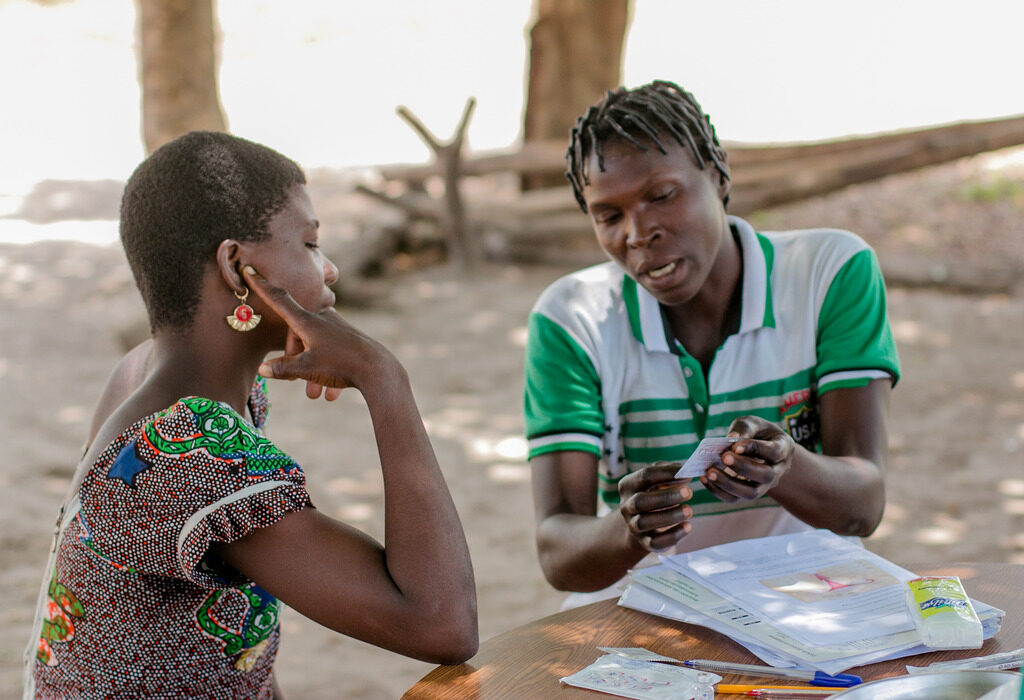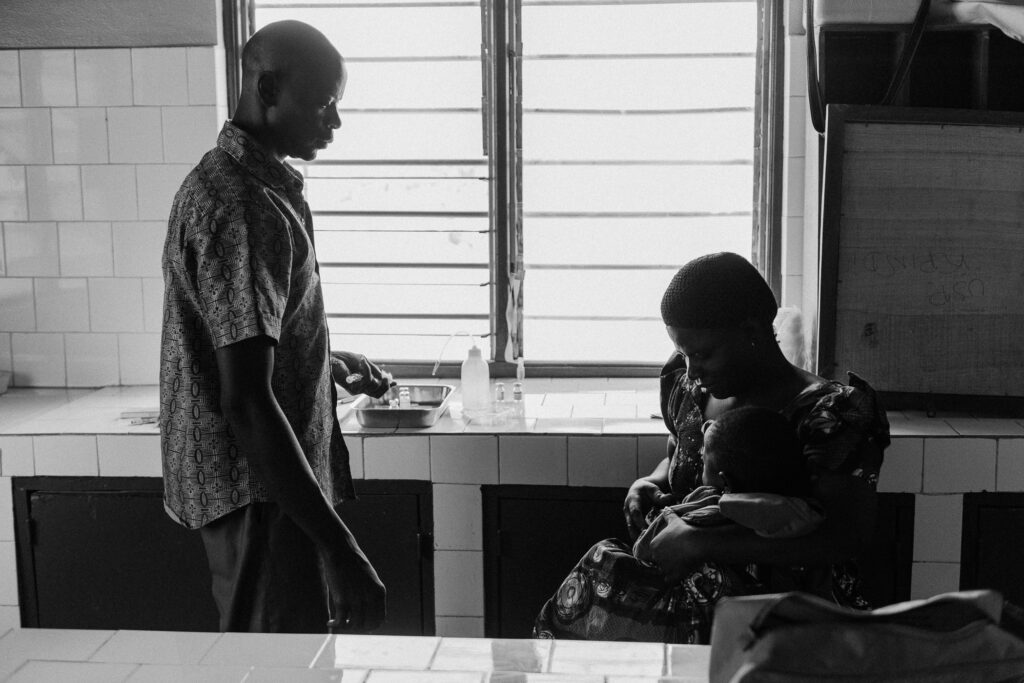“I usually get bored in these types of meetings,” said Alazar*, a community member from the district of Bassar while attending one of Integrate Health’s community town hall meetings. “But this time, I stayed until the end so that I could speak about how the Integrated Primary Care Approach helped me to grow maize,” he proclaimed.
Every year, Alazar’s four children fall ill, and he has to use all of his profits from farming to pay the costs associated with seeking healthcare. These costs include transportation to the hospital, fees to see a nurse and have tests completed, and medication costs to treat his sons. Every year, these costs add up until he can no longer afford to buy fertilizer for his farm. The year shortly after Integrate Health launched the Integrated Primary Care Approach in the Bassar district, three of Alazar’s children fell ill with malaria. He was at a loss for what to do, until a Community Health Worker showed up as his door, checking in on the children. She explained that she could test them for malaria right there in their home, and if the test was positive, she could provide medication, free of charge. he Community Health Worker also explained that if the children fell ill again, they could be treated free of charge at the health center. Alazar said this was a turning point for him, and because of the services provided by his Community Health Worker, he is able to grow his maize and earn an income.
What are user fees?
User fees are also called “point of care” fees. These are fees charged to patients at the moment they are in need of healthcare services. Integrate Health believes that user fees are not an effective way to pay for healthcare services given the undue barrier they create for patients and the relatively small contribution they make to overall cost recovery.

How do user fees impact healthcare service delivery?
Research has shown that paying user fees is strongly correlated with catastrophic health expenditure, which often leaves patients and families in debt or in poverty. In addition, user fees have been shown to limit health access, with larger negative effects on women and children living in poverty. In many countries that have removed user fees, research has found that access to and use of healthcare services increased after the removal and can lead to improved health outcomes. In Malawi, the introduction of user fees led to a 68% reduction in healthcare utilization, whereas the removal of user fees led to a 352% increase in utilization. This can have significant consequences for maternal and child health, particularly among the most vulnerable who often do not have readily available access to healthcare.
How can healthcare costs be covered in more efficient ways?
User fees contribute little, if anything, to health system revenue, while creating a major barrier to health service delivery. Furthermore, user fees are inequitable, and disproportionately affect women and girls experiencing poverty. Investment on behalf of governments in Universal Health Coverage, including strategies such as national health insurance, creates a more equitable health system. Options for revenue-generation that can be invested in healthcare include taxes, value-based user fees, or innovative financing mechanisms such as a mixture of public, private, household, and aid expenditure.

How does Integrate Health work with clinics to remove user fees?
Integrate Health provides monthly operating grants to the health centers to cover the cost of the services incurred over the month. To calculate the costs, Integrate Health works with clinics to determine their costs and revenue from maternal and child health services based on medical records. After reviewing the medical records, Integrate Health works with the health center to determine how much revenue they received from those services. The operating grant also covers referrals to hospitals for services that cannot be provided at the health center level. This approach models the correlation between the elimination of user fees and the increase in health service utilization, and consequently good health outcomes, when the patient does not pay direct costs for healthcare.
How does user fee removal change the health system?
User fees present a barrier to healthcare delivery. When patients are presented with a decision to seek care at a health center with user fees, many people choose not to seek care. Research has shown that patients delay care by seeking out unregulated forms of healthcare including informal market stalls that may sell expired drugs. Not only will these drugs most likely be ineffective, but they may also be harmful. In both cases, when the patient finally visits the health center, they will face much higher costs if their health issue has worsened over time. User fee removal ensures that when a patient is ill, the patient will receive timely care. For mothers and children, this is the difference between delivery in a hospital, or on their bedroom floor. It is the choice between lifesaving malaria medication or preventable death. For families like Alazar’s, this may mean the difference between a good farming year or no income.
User fee removal changes health systems because when people feel empowered to seek the care that they need, more mothers and children survive, and families and economies thrive.
*Name changed for privacy
